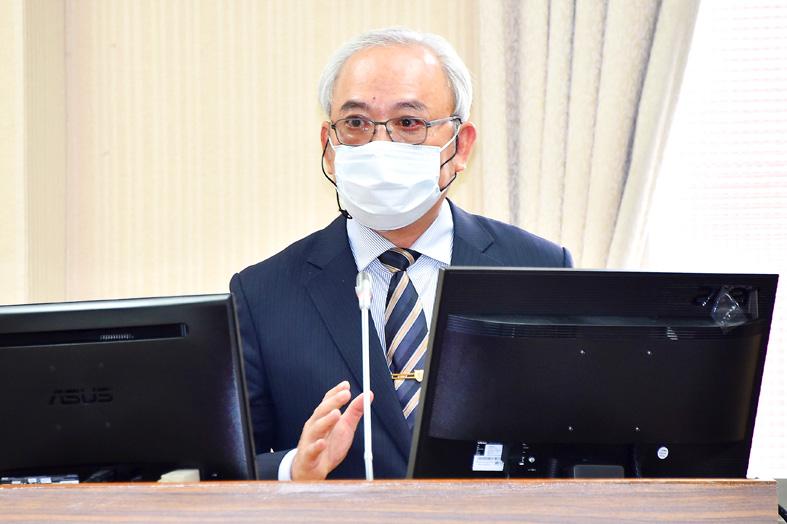A Chinese-funded research institute had set up an office at Taiwan’s National Tsing Hua University (NTHU), the National Security Bureau (NSB) said yesterday, adding that Beijing could have used it to attract talent to its semiconductor industry, which is short of workers.
The Ministry of Education has ordered the office to shut immediately, NTHU said, adding that the office’s personnel should depart without delay.
Yesterday, the Liberty Times (the Taipei Times’ sister newspaper) reported that the Cross-Strait Tsinghua Research Institute (清華海峽研究院) had established an office at NTHU’s main campus in Hsinchu City without securing approval from the government.
The campus is known as a key incubator of high-tech talent for the Hsinchu Science Park (新竹科學園區).
The newspaper said that the institute — which was founded by the NTHU Alumni Association in cooperation with China’s Xiamen City Government and Tsinghua University — used its office in Taiwan to research, develop and invest in technologies, as well as to recruit high-tech talent, which would contravene the Act Governing Relations Between the People of the Taiwan Area and the Mainland Area (臺灣地區與大陸地區人民關係條例).
The security ramifications were yesterday scrutinized by lawmakers at a meeting of the legislature’s Foreign Affairs and National Defense Committee.
NSB Deputy Director-General Chen Chin-kuang (陳進廣) told Democratic Progressive Party (DPP) Legislator Chao Tien-lin (趙天麟) that the Liberty Times report was accurate, adding that security and intelligence officials were fully aware of the situation.
NTHU did not follow lawful procedures for establishing such an office on a university campus, Chen said, referring questions about details to the ministry.
Chen told DPP Legislator Wang Ting-yu (王定宇) that the institute’s office, like all organizations based in China, was under the control of the Chinese Communist Party.
“China needs talent for its semiconductor industry and other high-tech sectors. To meet demand, it still needs about 600,000 workers,” Chen said.
Wang and Chao said that the government must take the matter seriously, as the US, Australia and several European countries are taking action against China’s infiltration of university campuses.
The institute was established by certain university alumni to promote education and support entrepreneurship, NTHU said in a statement.
The Tzu-chiang Foundation of Science and Technology (自強工業科學基金會), which was also established by NTHU alumni and is headquartered at the Hsinchu campus, leases space from the university, and it sublets some of that space to the institute, NTHU added.
“The institute does not belong to the university, nor is the university involved in its operations,” it said.
The institute has been closed for a while due to COVID-19, foundation chairman Ken Lu (盧崑瑞) said, adding that the foundation terminated its lease with the institute.
The ministry said that the university could be fined up to NT$500,000 for contravening Article 40-2 of the act, which prohibits non-profit legal persons, organizations or other institutions in China from establishing a liaison office or branch in Taiwan to engage in business activity.
A task force established by the ministry would continue to investigate the situation, it said.
Mainland Affairs Council Minister Chiu Tai-san (邱太三) said that the council became aware of the situation in July and asked the ministry about it in August.
“In the past, the government rarely investigated China’s infiltration into universities and research institutions, out of respect for academic freedom. This situation serves as an opportunity to investigate whether similar situations have occurred at other universities,” he said.
Source: Taipei Times - 2021/11/09





















